I have been present at births, and I have witnessed the mother, eyes closed and her very being inhabiting a different place. Michel Odent calls this 'labour land' and importunes us to not disturb the labouring woman.
Wednesday, July 12, 2023
Birthing among the Stars
I have been present at births, and I have witnessed the mother, eyes closed and her very being inhabiting a different place. Michel Odent calls this 'labour land' and importunes us to not disturb the labouring woman.
Thursday, June 1, 2023
Adopted....What's Your Problem?
Adopted? What’s Your Problem?
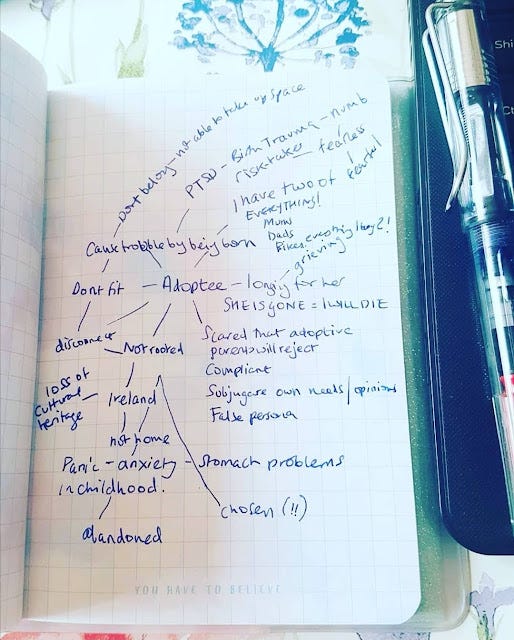
“I mean, you had a great childhood, didn’t you?”
Yes, I did have a great childhood. It was a little strange, admittedly, for one reason and another. My adoptive parents were late to the parenthood party and had been refused permission to adopt by our local authority, but managed to circumvent this when someone my adoptive father’s Italian uncle knew suddenly had a baby going spare.
My adoptive parents were Victorian in outlook. They had relocated from London’s East End where both grew up in varying degrees of poverty and wartime difficulty, to leafy Sussex where they felt like a pair of fish out of water. They were old enough to be my grandparents, but they were kindly, caring, and I had a clean bed and bread on the table. My childhood was lonely, but offered the sense of safety that I needed. My teenage years were sometimes very difficult, like those of a lot of adopted and non-adopted people alike. The problems I experienced followed me in to my twenties. So in reply to this most frequent of responses to mention of my status as an adoptee and the effect this has on my life, yes, I had a good childhood.
I mustn’t be unkind. I often struggle to make a sensitive response when someone springs something like this on me in conversation, but honestly if I had a pound for every time someone made this kind of comment I’d be typing this from my beach on my private island by now.
Other variations on this kind of comment run like this:
“Its not like you can remember your mother or recall her leaving you can you?”
“Life was very hard for women in the 1960’s you know”
“You had a mother figure didn’t you?”
“Nice to feel that you were chosen, special…”
“Ooh…so interesting…have you ever tried to….(Don’t go there unless you have the time and capacity in this conversation to go there. And you don’t. So just don’t)
“My friend/hairdresser/cousin/whomever was adopted and it didn’t affect them at all.”
It’s hard work having to hear these kinds of remarks when you tell people that you’re adopted, and it can be challenging to formulate a reply that informs the other person, honours your own integrity whilst being appropriate to the setting, which is often meeting a new person in a social situation.
There are things I really want to say, and a howl of pain that wants to escape from my chest to express the intimate and raw place in my self that we are now speaking so casually about. Rather than smiling and passing the canapes what I really want to say is:
“No, I didn’t have a ‘mother-figure’ growing up…I had a mum. In fact, I had two. One who raised me and one who birthed me. I honour, thank and love them both. Lucky me. Did being relinquished by one woman into the care of another have an affect on me, even though I can’t consciously recall the details?
OF COURSE IT DID!! And still does.
No, my cognitive brain has no memory of my birth, any more than yours does of your own arrival on the planet. But my body, my cells, my being, remembers. More than remembers, the trauma was literally built into my being. My nervous system remembers being set to ‘high anxiety’ and ‘fight, flight, freeze, fawn’.
Babies are already bonded to the person they have spent their entire life inside of.
Yes, life was incredibly hard for my dear birth mum at the time of my conception, carrying me, birthing me and then relinquishing me. And then, I would imagine, the really hard part came…trying to live her life alongside her loss of me.
It was brutal for all women who found themselves to be in her situation, and incredibly, it still is for women all over the world. Our world leaders still can’t grasp the fact that reproductive rights are human rights. It was hard for both of us, and the effect of those hard times was devastating…for both of us. I lived it with her, in her.
Am I really lucky because I was chosen? Do you really think it was that ‘nice’ to be available to be chosen…like a commodity, a product? To face the possibility that I might have been NOT chosen? For some spurious reason like the colour of my skin, hair, whether I was crying or not, whether I appeared acceptable and attractive, at the most devastating and helpless vulnerable time in my life?
And those beautiful people who did choose me, what a crushing weight of gratitude I owe them for my life, how careful I was to not put a step out of place, to never express my own inner thoughts and visceral, all-consuming desires. Not because they weren’t receptive or understanding, but because of relinquishment trauma.”
That’s what my soul longs for people to understand, but it’s not really the kindest reply to an innocent comment. People generally mean no harm, they’re just seeking to understand something they might never have had to think about before. They might be seeking to understand me, or maybe they’re feeling anxious and just making what they think is easy conversation about an ‘interesting’ subject. They haven’t realised that they are digging around inside the most painful place. And us, the adoptees, the experts, even we can’t offer a succinct and palatable summary, tied up with a bow, suitable for such chit-chat. It’s too deep, too unfathomable, our culture has no language for this loss.
We are transported back in our nervous systems to fight or flight or in my case, usually freeze. The nervous and emotional dysregulation follows, unless I can catch it first and talk myself down, soothe myself.
It can be a lot.
Under the surface of a fortunate and blessed life, it is a lot. Always. Look after yourselves, my dear fellow adoptees, whatever that looks like to you. And if you don’t know what that looks like, start with getting some good sleep. Rest, exercise, good nutrition. Do stuff you enjoy. Get out into nature, or look up at the stars. Get some help, someone competent to handle abandonment trauma, or someone you trust to talk to. Stop medicating your anxiety with alcohol, it doesn’t help in the long run, in fact it makes anxiety worse.
Step at a time.
Can The Wound of Adoption Relinquishment Ever Heal?
Can the Wound of Adoption Relinquishment Ever Heal?
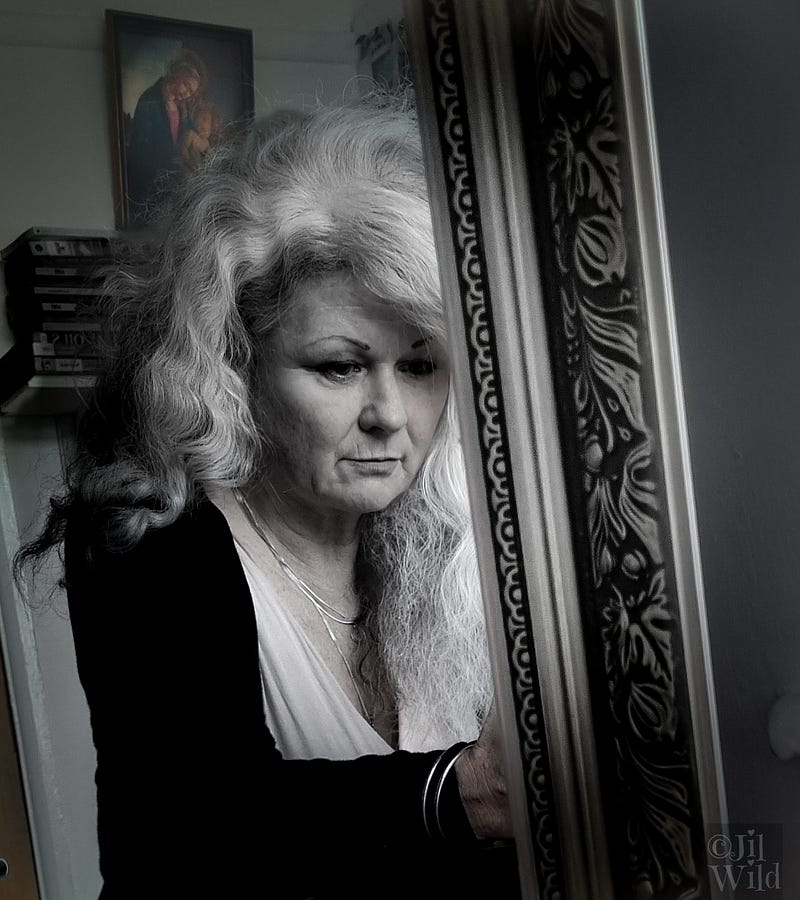
I have the deepest faith in nature’s and the human body’s capacity for healing. It’s a faith born out of personal and professional experience and observation. I contemplate the nature of the primal wound as experienced by adoptees, and I wonder if this wound may be the wound that never completely heals.
The healing of a skin wound and probably spiritual and emotional wounds too, happens from the lower levels upwards. Some wounds are kept open on the hospital ward to make sure this natural order is preserved. Trapping unhealed parts of ourselves, whether physical, emotional or spiritual, under a surface gloss of apparent wellness, is always a recipe for disaster. Sooner or later, the surface breaks down to reveal the truth beneath, that all is not well.
The temporary surface scab protects the physical underlayers as they mend. When the deeper layers are mended the surface scab falls away to reveal a fresh new layer of scar tissue that is different in various ways from the original, but does the job nevertheless.
With emotional and spiritual wounds, the protection comes from our own resources, and from our ability to connect to those close to us and lean into whatever support they can offer. Healing non-physical wounds is not a linear process, and progress towards wholeness moves in fits and starts, but the natural imperative is towards health. Our own patterns of thought and behaviour can work against this of course, but the natural order supports our progress.
What mysterious energy is directed by some positively aligned and intelligent force towards the organisation of tiny cells into a state of cohesion with one goal…the restoration back to wholeness?
I’ve seen this energy at work, in fact I’ve seen it accomplish the impossible. I’ve felt it fill my being with light, brightness, lightness. I’ve also seen this energy being thwarted, usually by our own destructive or unhelpful actions which have at their core a disconnection to the internal supply of that mysterious life-fuel. I have witnessed and personally experienced that disconnection, and how it leads to the seeking of other kinds of fulfilment, other kinds of fuel to light and warm the dark hollows within. Alcohol was my fuel, or rather addiction is my fuel. My addiction now is to sugar and scrolling, although I can also connect to the source for periods of time and work to let the rest go.
We leave the womb to begin life on this planet very early in our body’s development. Other baby mammals can get up from their place of birth and follow their mothers on foot, feeding as they need but otherwise good to go. Human babies can’t do that. Human babies continue to develop their bodies and their psyches for many years before the gradual process of becoming independent beings. Nature has ensured that our mothers will support and nurture and love us through this time when we are completely vulnerable, by designing the process known as bonding.
Bonding begins in the womb where we are surrounded by her, her sound, her smell, her taste, privy to the secret rhythms of her life. And after the most tumultuous and seminal event that is our birth, we are programmed to be soothed by her warm soft skin, her familiar voice and her same heartbeat now heard from the outside. The immense power of this time is downplayed in our culture, which doesn’t recognise the importance of the dyad.
A dyad is one thing that consists of two parts. Every part of the mother’s physiology needs her baby and the baby, of course, needs the mother. Our mothers are us, and we are them. Breaking the dyad…can that ever heal? I don’t know.
Human babies need a parent who can love us through the tremendous burden of work we place upon them. We need a Mother. We need her softness, her responsiveness, her tenderness. To be well, we depend upon her selfless generosity with her time, her body, her milk. Her face is as far as a baby’s eye can see, and this is for a reason. We need to see into her eyes and locate our own selves in the warm universe they open into. From this inky space we learn attention. We learn what it is to receive attention, and we learn how to pay attention. How to hold a thread of thought from one synaptic gap to another to another for this is how things get built, and mended. Maybe here is where we receive our attunement to divine source, where we get wired in to the grid so that we will forever be able to find our light in the darkness.
This isn’t completely a one time deal, there are opportunities over a short period of time for this interaction to take place…but at some time in our early months on earth, that window closes.
Cows milk is designed to grow a big, sturdy body, and human milk is designed to support brain growth, for that is what us humans are all about, the brain…the size of it is why we have to get ourselves born so early in our development. As a baby feeds, and also whilst they sleep, a ferocious amount of growth is happening in the brain now that it is able to expand in size, free from the confining space of the womb. Is abandonment being stitched into those inner pathways where relinquishment has occurred?
Is our wound a special kind of wound because it isn’t something that happens to a whole person with a pre-trauma personality, that they may then heal from, but more like a blueprint inside every part of us as though we are one big wound, along with all the other sacred gifts we bring in.
I know I feel like that sometimes.
I know that I have to parent myself at times. I have to exercise patience and love and the ability to hold space for my own inner screaming, shaking, sobbing little self. Now that I know consciously, intellectually, what it is that I never had, or had for too short a time and lost, I can reach back down through the inner architecture to my core structure to make adjustments, to offer manna as if from Heaven. I know that from somewhere inside my core a healing process has begun, as I abandoned alcohol and allowed myself to shiver in the dark and wait in hope and faith to grow my connection to the light.
So as I heal, from deep inside, I wonder how much healing I can do in this lifetime. I acknowledge that there is still a place of unbearable tenderness, a place that can’t stand to be touched, still.
Adoptee Fog. The Lie They Made You Live.
Adoptee Fog. The Lie They Made You Live.
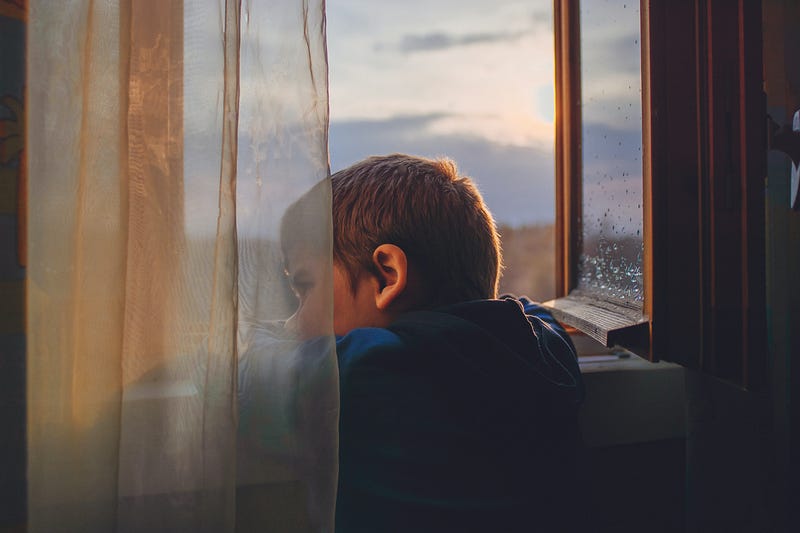
Adoptees often speak about being in ‘the fog’ or ‘coming out of the fog’. The term is used often in adoptee communities, and its origin seems to be lost in the, er, fog. The meaning of ‘adoptee fog’ to adoptees is clear, but only when you’ve actually managed to get your head above the cloud of it, even if only briefly. Let me explain.
Being relinquished at birth or shortly afterwards, being separated permanently from the mother, in the mammalian world of which we are a part, means almost certain death. Birth isn’t just any old time in a life, it’s the most supremely sensitive time for imprinting, bonding, for survival. To be born, and to feel like you are going to die…what a trajectory to begin a life on. Nature has designed mothers and babies to be a dyad, that is one thing composed of two parts. Each part needs the other to be whole. The loss of the person inside of whom you have lived your whole existence thus far, is utterly devastating.
So much energy and time goes in to growing a new human, and the care of a human baby is so intensive and all-consuming that nature has designed the bonding and early new born stage with careful precision. Every cell, every system of the new human’s physiology and biology fully expects to recover from the rigours of birth in the familiar aura of the mother’s body. Her voice, her smell, her vibration, her taste, the sound of her heartbeat, is all they have ever known and is home.
She is home, she is safety, from here we can recover, we can begin to live, and thrive and grow.
Imagine yourself just the other side of something huge, an accident, or surgery perhaps. When your doctor says you’re well enough to recover at home, you’re in total agreement that your cosy lovely place, the familiarity of loved ones and your totems and possessions that make life nicer, is where you’ll recover best. But when you get home, it isn’t your home. The person you wake up next to, isn’t your loved one. Maybe they’re a nice person, maybe they’re not; you are completely dependent upon them for your life. You feel depleted, vulnerable and in need of comfort, but this person is a total stranger. They do not have what you need.
Now imagine that everyone in your brand new home and existence pretends that your loss of everything that is familiar, comforting and precious isn’t relevant. Maybe they pretend it didn’t even happen. In fact, it’s quite important that no-one mentions your devastating loss, or acknowledges that you are grieving and in shock. Maybe you imagined it all. Probably the fault lies in you (maybe that’s why she gave you away) and maybe you’re a bit mad. So it’s best for everyone if you just act like you are the luckiest person in the world, and if you should forget this, don’t worry because everyone around you will remind you of it. For the rest of your life.
So you grow, slowly, because your nervous system is in fight or flight and this impacts the ability to thrive. You look around you at these people who don’t smell like you, don’t look like you, aren’t ‘of you’. You don’t yet have language, so you can’t explain this feeling of wrongness to yourself, let alone anyone else. Everyone you encounter appears convinced of a truth that doesn’t resonate for you, that seems counter to reality, it seems like madness itself. You are the only one who feels this way. You’re the odd one out.
Unacknowledged and unexpressed shock and grief, combined with the dread of what might come next (my actual mother left me, these new people could easily do the same) consumes most of your bandwidth. Nobody in your life reflects your extreme and abhorrent situation back to you. The only acceptable truth is that you were chosen, you are lucky, you are special. Your biological mother suffered and if you whine about losing her you’re somehow making it worse for her. You’re disrespecting her. In fact, you have a very important purpose in your life, which is to make two childless people complete. You’re the second best option, obviously, because they wanted their own child, so you must be respectful of their grief and aware that you are a poor second. But you must make them happy, fulfil their dreams, and if you don’t…well, you know what happens, because you’ve been there once before. There is no safe container for your own all-consuming and excruciating truth, in fact your own truth threatens to destroy the fragile home that you have, so you step in to the culturally acceptable lie.
This lie is otherwise known as ‘the fog’.
The fog can look like nothing ever went wrong, and that you are grateful for your adoptive parents and your life and that of course you can’t remember your beginnings so it doesn’t matter.
But you might struggle with trust, and friendships. The thought of your birthday looming might bring inexplicable feelings of anger, sorrow and a wish for the day to be over. You struggle with taking up space in life, and with an underlying feeling that you shouldn’t be here. You survive, but you don’t really grow, or thrive. Any reference to finding your biological family makes you insist that you’re happy and have no wish to search or to know. Those are the only words that will come out of your mouth because the rest, the truth, has been pushed down so far and is so unspeakably terrifying and hurtful that you can’t acknowledge its existence even in the privacy of your own thoughts.
That’s a big old fog right there.
It can also look like anxiety, depression, panic attacks, terror, stomach and eating problems, sleep problems, difficulty with relationships, relating to people, being shut down, sad, nervous system and emotional dysregulation, living from day to day with no plan ahead, and health problems in general.
How do you put your head above the clouds and see the fog for what it is?
I can only answer that from my own experience, as each person’s wake up will be individual to them. I was 47 when my moment came, and it wasn’t anything I read, or even anything anyone said. It was seeing a guy on TV being interviewed about something or another, and the interviewer asking about his childhood.
The chatty and cheery man went quiet. His eyes, as they suddenly filled with tears, took on a look that I instantly recognised.
“I was adopted as a baby,” he said.
I had, and to this day, have no single word to describe the complex and layered story that I saw and felt in the core of my being, looking at that moment at the TV screen, into that man’s eyes.
I had never seen that look before, but I instantly knew it as well as I knew anything. It conveyed simultaneously the most heart wrenching sorrow, and for me, the most gloriously truthful thing I had ever seen. It was like coming home. It was like someone had seen me, really seen me for the first time, even though I was the one doing the seeing, watching the TV, looking at a stranger whose eyes could have been mine.
I had finally seen myself.
I knew from that moment that I too had suffered a devastating loss and that my life had mainly been filled with coping with this and the slow recovery from it.
Beyond “I was adopted as a baby,” the man on the TV hadn’t even said a word. He didn’t need to, because that kind of devastation happens pre-language, yet I felt that a lifetime’s story had been communicated to me in that surprise moment of seeing the man’s soul through his eyes.
I finally saw my truth after 47 years, and the witnessing of it allowed me to realise that I was in the fog, and to start finding my way out of it. I hope that as I write my story, my words can be a lantern for other souls in this grey and cold place.
I want to acknowledge my birth mum for her love and loss and my sire and my dear mum and dad who gave the latter part of their lives to me. They gave me a safe and loving home and never made me feel second best. But as we are learning, the damage was done before they got there.
When An Adoptee Gives Birth
When An Adoptee Gives Birth
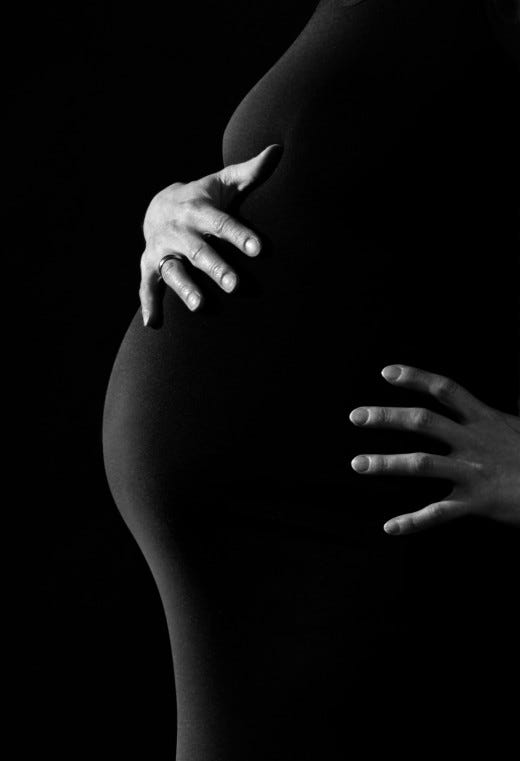
From an adoptee perspective, the head may well understand the reasons behind relinquishment, and some will, I sincerely hope, be able to find a place inside themselves of non-judgement and compassion for the biological mother despite the culture around us which allows us only certain expressions and no others. Of course the head can comprehend the reasoning behind our adoption and the fact that in some cases, mine included, we are absolutely ‘better off’ with the adoptive parents.
But the heart never stops yearning, and searching.
I have written about ‘Adoptee Fog’ and how adoptees will often be convinced that relinquishment has had no effect on their lives at all.
I can only speak from my own experience and say that for 47 years, I too thought that I was unscathed by being adopted. I didn’t stop to consider that the post-partum depression I suffered in varying degrees following my five births, could have something to do with the somatic reverberations back to my own arrival on the planet, and subsequent abandonment.
I use the word ‘abandonment’ without any judgement towards my dear birth mother who was also a victim of our separation, and without judgement towards ANY birth mothers, whatever their circumstances. I use the word ‘abandonment’ in honour of the infant who has no voice, and for whom this word is a accurate description of their circumstance.
Pregnancy and birth are supremely physical, spiritual and emotional rites of passage for both the mother and the baby, and nature prepares both in a very precise physiological and physical way for their new life together post-partum. Mother Nature is not wasteful, and growing a new human is a costly exercise in terms of time and energy so the design for post-birth attachment, nurturing and feeding is impeccable and rarely fails amongst mammalian species. Of course human mammals, with our large neocortex and our capability to overthink everything to the point of destruction, have departed too far away from the biological norm in our quest to make these events fit our cultural and social narrative.
This includes our ability to pretend that a human baby can be separated from their mother at birth with no consequence to them.
A human being grows cell by cell inside the body of their mother, over an average of 40 weeks before going through the most tumultuous journey with her, culminating in the most influential and seminal event of our lives. Our life inside our mothers prepares us for life outside. From her body, our body receives information about the levels of stress we should expect on the outside, the availability of food, and what that food will taste like. We learn the sounds of the voices of our mother and the people in her life. We live a little lifetime in there. It’s where our own body is built.
No one really knows exactly what starts the labour process, but there is a protein, released by the baby’s lungs when they are mature, that signals readiness to the mother’s body. Who can guess what other private communications we are in with her in our collaboration to bring our own soul into incarnation through the journey that she will never forget and that we will never consciously remember. We are born through her body by the movement of her most intimate parts, to the sound of her roar and the smell and taste of her blood. You think I can forget her? Is it the ultimate in disconnect that I can have gone through this with a person but in all my life on earth I never get to look into her eyes…that I can remember.
Once born, our innate reflexes allow us to crawl naked up her belly to her breast and once there, to find her nipple, to latch on and begin to suckle. Yes, a newborn can do this and will do this in the first hour after a birth where the mother was not heavily medicated or traumatised or anaesthetised or subsequently disturbed by weighing and washing and swaddling and all the other interference. The ever-present archetype of ‘The Journey’ begins here, I believe, if it didn’t already begin before conception. What a lost skill it is to sit witness to a mother and baby in this interaction, supporting her to support her baby’s mission to her breast, without our usual need to ‘help’ the ‘helpless’ baby to latch.
Her nipple will smell and taste of her. Her milk will taste of the foods she eats, like the amniotic fluid in which we have lived a mini-lifetime whilst we were constructed of those same foods. Everything is familiar, comforting, and ‘of me’. A continuum of love whilst we learn for the first time to experience hunger, cold, noise, whilst we learn to co-ordinate sucking, swallowing, breathing, whilst we recover from the ferocity of our birth.
I believe that healthcare providers need to ask mothers in the antenatal period if they were adopted. We know that adoption has an impact on mental health, and the experience of losing her own mother at birth may trigger somatic memories for her as she herself undergoes this rite of passage.
Journeying Back to My Life Before My Own Birth
Journeying Back To My Life Before Birth
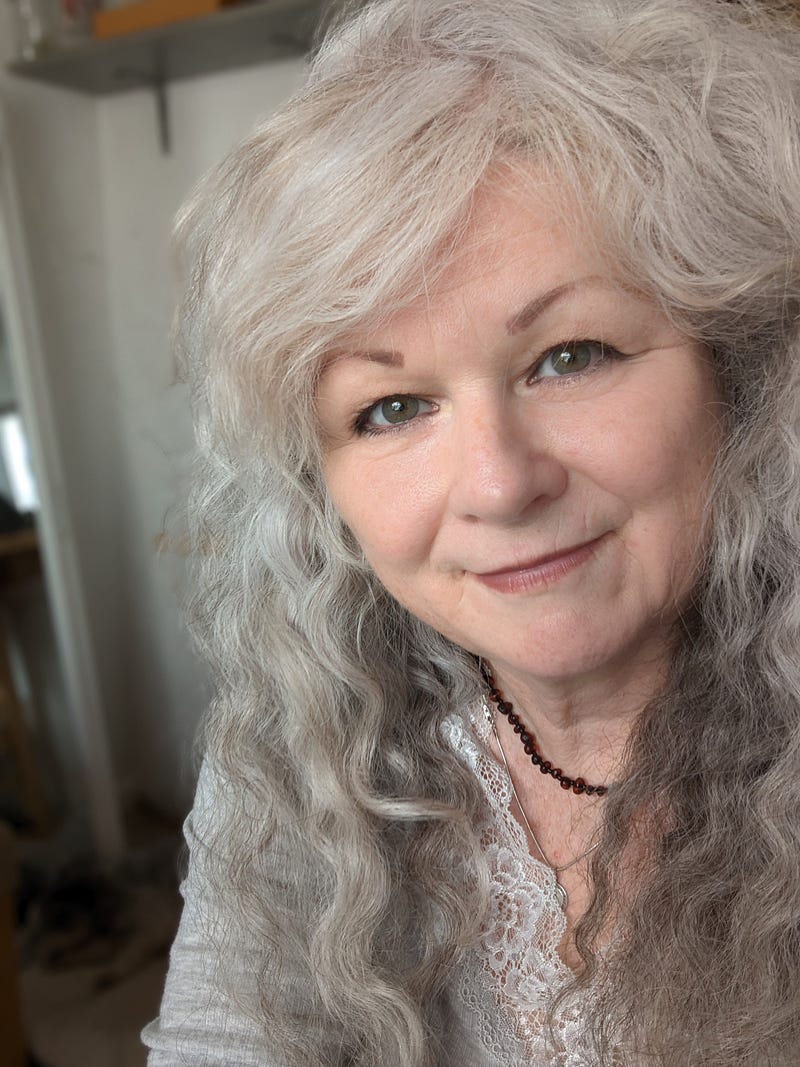
I have written on the subject of relinquishment of a baby by their mother for adoption, and the effect being relinquished had on me personally in my early life through to adulthood and beyond. Here I write about the catalyst that in an instant made me realise, at the age of 47, that I had sustained a primal loss which had affected my life, relationships and sense of self.
Up until that lightning-bolt moment, I thought that being adopted at nine days old had not really impacted me at all, and that everything in the garden was rosy. And really, everything was pretty great in my life. I had been bought up by loving parents, although both passed away whilst I was only in my 20’s, and I always mourned my lack of siblings. I married a great guy and we have five beautiful children of our own. Sure, I had trust issues, and difficulties with depression and anxiety, but I kept trying to improve my life and to feel better, and I never associate this with what had happened when I was a tiny baby…I couldn’t see the connection.
After the lightning-bolt, when I saw that damage had been done, I took the time to journal, and write, and to think about what I’d discovered. Around this time I was working as a birth doula, and I had to pause my work whilst I addressed my own wounding. I became ill with shingles, and between sleeping and listening to my neighbour’s dog bark, I read books by adoptees, and I wrote some more. I wondered how I might go about healing something so fundamental, something buried so deep, something I have no conscious memory of.
A book came into my possession.
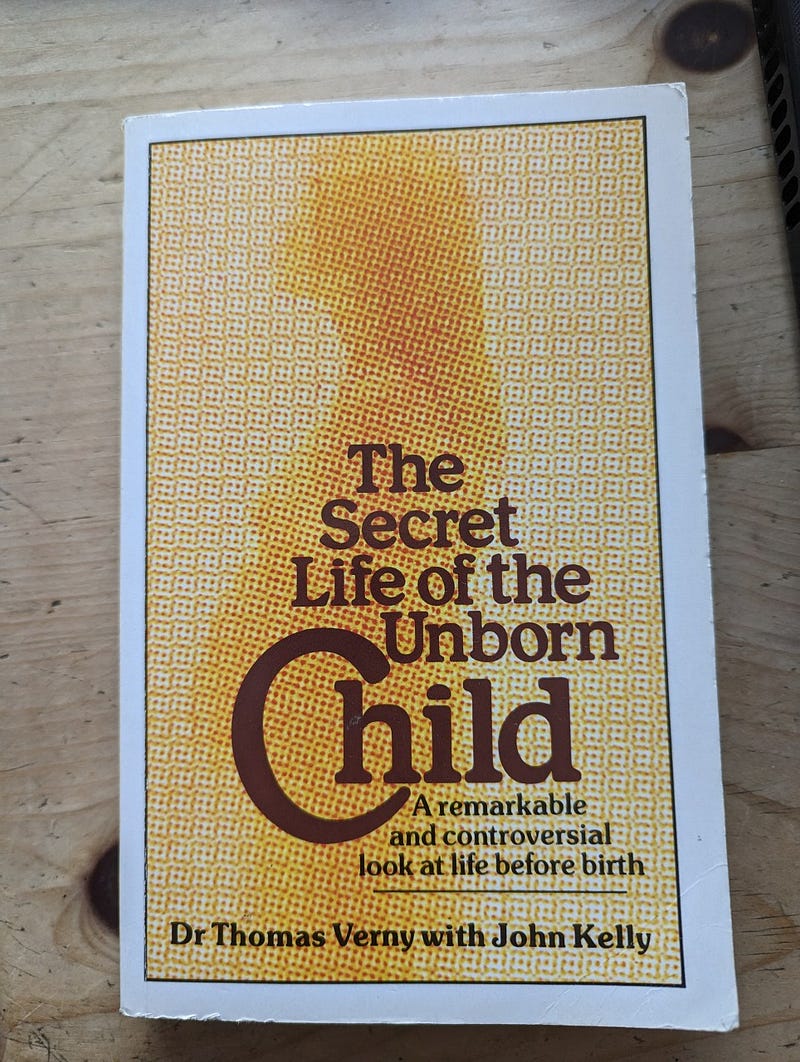
Dr Thomas Verny and John Kelly’s book ‘The Secret Life of the Unborn Child’ was published in the US in 1981. In it Dr Verny presents the results of two decades of research in to early life in the womb. Findings showed that the unborn child experiences feelings, emotions and can learn whilst in the womb. That which the child perceives at this stage of life actually shapes his expectations for his life outside of the womb.
Chronic anxiety or a wrenching ambivalence abut motherhood can leave a deep scar on an unborn child’s personality. ~ Dr. Thomas Verny.
Thomas Verny knew that at the time of publishing in the very early 1980’s, he was offering what he describes as a ‘radically different’ description of an unborn child than was currently espoused by the popular and medical press of the time. He knew it was vital that his ideas be backed by the most stringently accurate scientific reports and studies. It is a fascinating book and I’d encourage you to read it if you’re at all interested in the subject.
The impact of this book on me was to be huge. I was languishing in my sunny garden as I read it, recovering from my illness. I was still feeling too tired to read for very long, and soon the warmth of the late summer afternoon lulled me into a dreamy state and the book rested face down on my chest as I closed my eyes for a moment.
Altered State of Consciousness for Contemplation and Enquiry
In this slightly altered state of being, somewhere between sleep and wakefulness, I contemplated the fact that if I had been as aware of my in-utero life as Dr Verny described, then somewhere in my being, would be stored a memory of it, albeit not a conscious memory. My awareness and curiosity seemed to be guided very gently by my consciousness, and I realised that this was an opportunity to ask a question to the non-rational, somatic part of my self, and to be able to perceive an answer.
My question didn’t take the form of language, using words.
It feels like this is an important aspect of my experience in the garden that day. I was taking an unexpected opportunity to access the non-verbal part of myself, to ask about a time in my life that was pre-verbal. I opened my awareness up to knowledge about my experience in the womb, especially with regard to my upcoming relinquishment for adoption.
The ‘answer’ in the form of knowledge that I received, was shockingly clear, succinct, and ultimately, liberating. And the next step on my healing journey.
The ‘answer’ to my ‘question’ was that I understood very clearly whilst I was in the womb, that my mother and myself were not destined to be together much longer. Amongst the other emotions of loss and sorrow, would be a deep sense of relief. We each needed to be away from the other to complete our respective life journeys. Amongst all the ‘wrongness’ of separating mothers and babies on a physical, earthly level, and the massive effect this has had on me, there is a ‘rightness’ in the spiritual part of me, about the end of our time together.
The relief that came with knowing that things had happened exactly as they’d meant to was huge. To know that my deepest feelings that we weren’t meant to find one another again in this lifetime, were true. Ten years after this experience, I would find out just how true that was.
To know that I hadn’t found her after all my searching, and that I wasn’t ever supposed to find her, was the feeling that set me free to live my life without searching among the dust of the past to find a scrap of myself.
I would sum this experience up by saying that I believe by that being open to healing, to the grace that comes without warning, is a big step towards feeling easier and more joyful in this earthly life of ours. I had gotten myself caught up in a story, a story about how it was wrong that we’d been separated (and I fully acknowledge that it was wrong that my mother and other birth mothers didn’t and don’t have the support needed) and that a big part of my life had to be devoted to finding her, even though in my very bones I knew that she didn’t want to be found.
Dr Verny’s book is by no means the only work that has nudged me onwards in my quest to live a full and joy-filled life of meaning, and I will link more works here as I write about them. Thank you for reading this part of my story, I hope it helps others on similar journeys. Please remember, it is my own individual story, and I am no stranger to such interior journeying, which may not be for everyone.
Wednesday, April 26, 2023
I have No Pre-Trauma Personality
Danger was encoded into every cell my being built over the months of my gestation.


